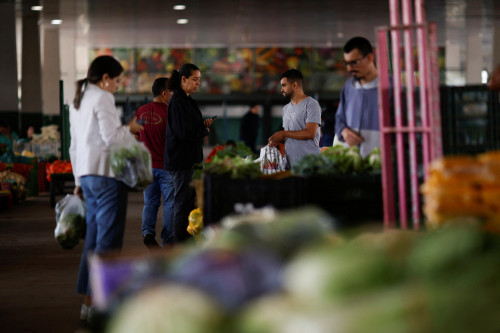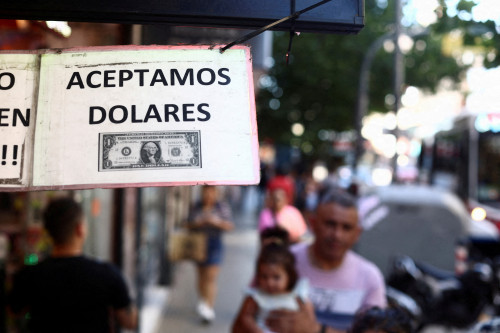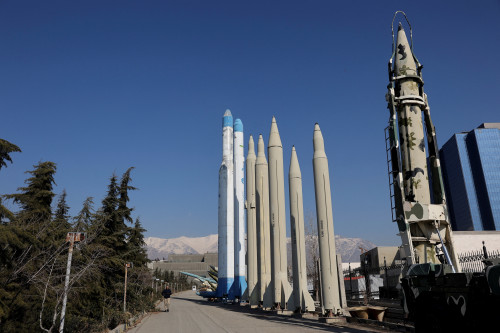
By Gabriel Burin
(Reuters) – Brazil’s inflation is estimated to have edged down in May as a persistent rise in food and beverage prices took a break, a Reuters poll found.
Food inflation has begun to cool due to a large supply of foodstuffs from a good crop and rising cattle farming, coupled with the commercial impact of a bird flu outbreak leading to a glut on the domestic market.
Official data to be published on Tuesday will likely show inflation ran at a 0.33% monthly rate and 5.40% in the 12 months to May, according to median estimates of 19 economists polled June 4-9.
This would mark a decline from April’s 0.43% monthly rate and 5.53% for the 12-month reading, the fastest annual clip since February 2023.
UBS analysts noted May’s trajectory was driven by an energy price hike, while “(monthly) food inflation is likely to print close to zero, as it reaches its low season of May-August.”
“Fresh food may already show prices falling, contributing 4 basis points to the downside”, the bank’s economists added.
Bi-weekly figures last month reflected price falls in categories like grains, fruits and vegetables as well as low increases in flour and milk.
Also, chicken prices dropped around 7% since the start of the bird-flu event, Brazil’s Agriculture minister said last week. Exporters redirected poultry products to domestic consumers after a slew of international bans.
Still, the 12-month inflation gauge is set to come in for the 8th consecutive month above the government’s target of 3% plus/minus 1.5 percentage points.
Beyond food and energy trends, services have been a key factor behind Brazil’s sticky inflation recently, with a resilient job market pushing up the sector’s costs.
However, core services inflation probably moderated to a 0.35% monthly rate in May from 0.61% in April, Barclays said in a report.
This would support growing views the economy is slowing down, a process expected to become clearer in the second half of the year.
The nascent deceleration is the result of a monetary tightening campaign that last month brought up Brazil’s benchmark interest rate to 14.75%, a near-two decade high.
The central bank is maintaining a data-driven approach for its June rate-setting meeting, without committing to a specific policy path, governor Gabriel Galipolo said on Saturday.
(Reporting and polling by Gabriel Burin; Editing by Chizu Nomiyama)



